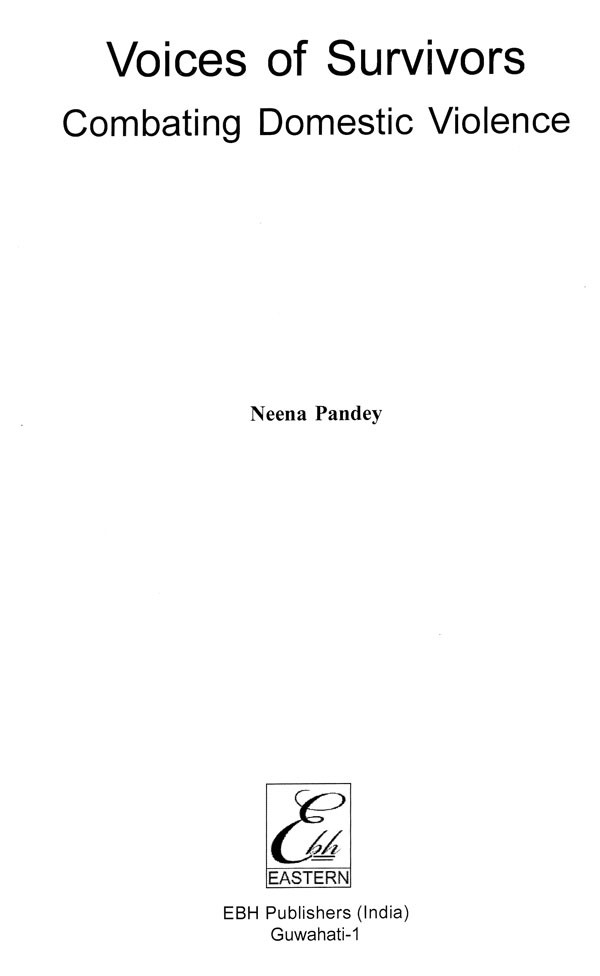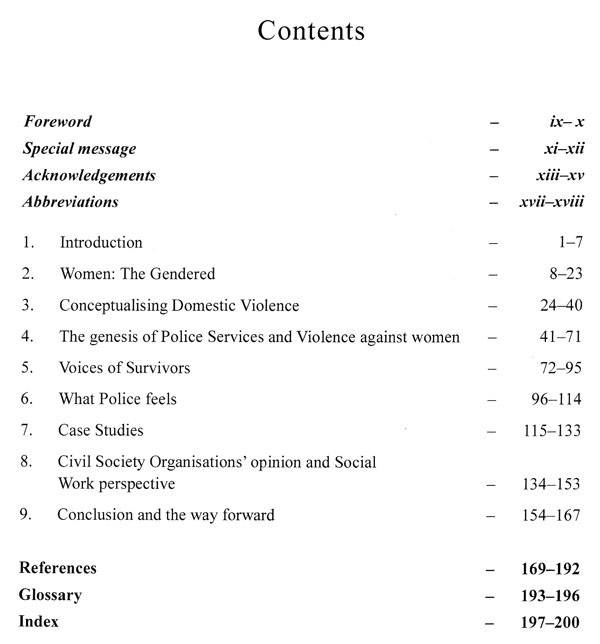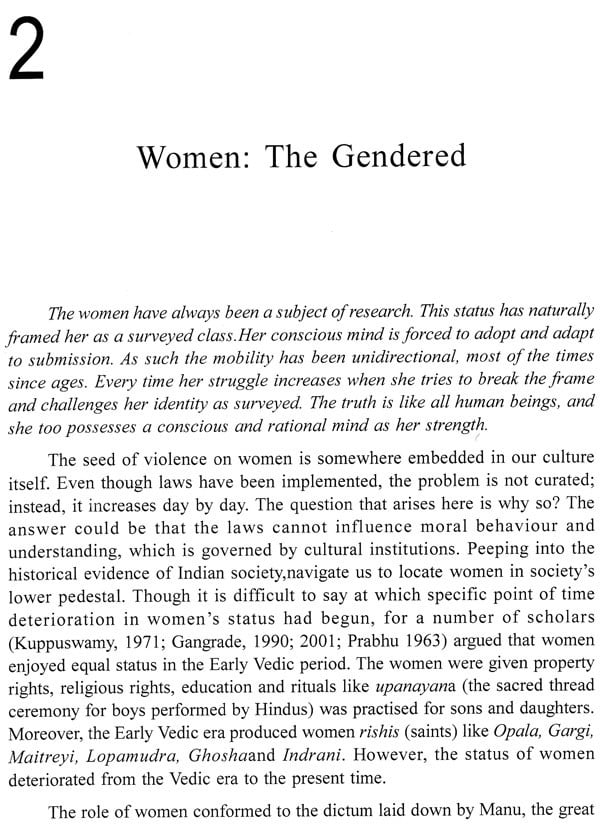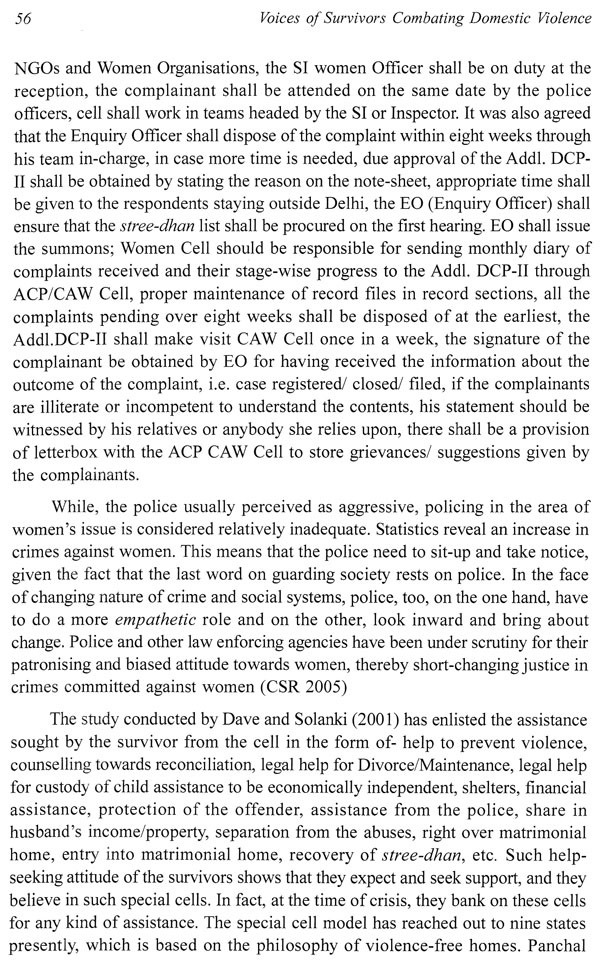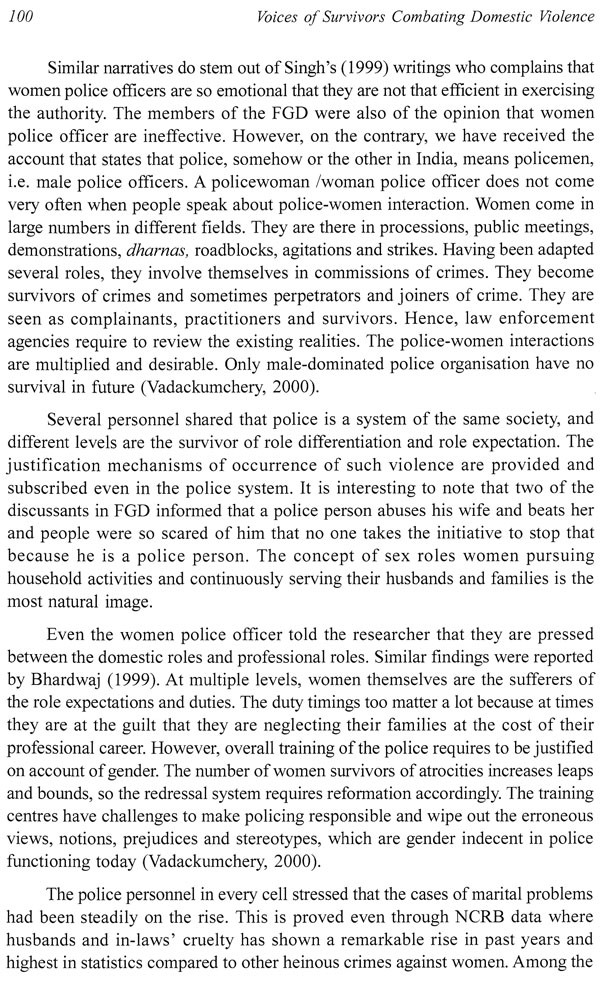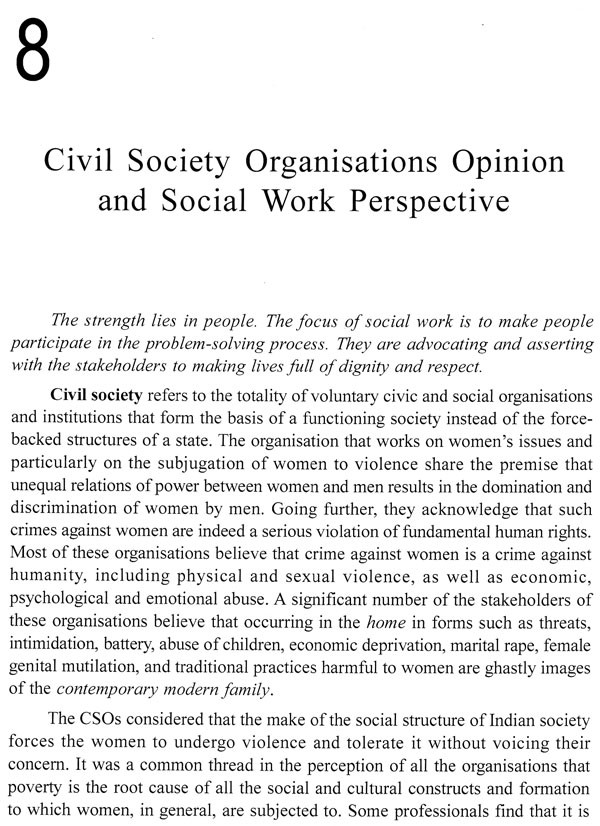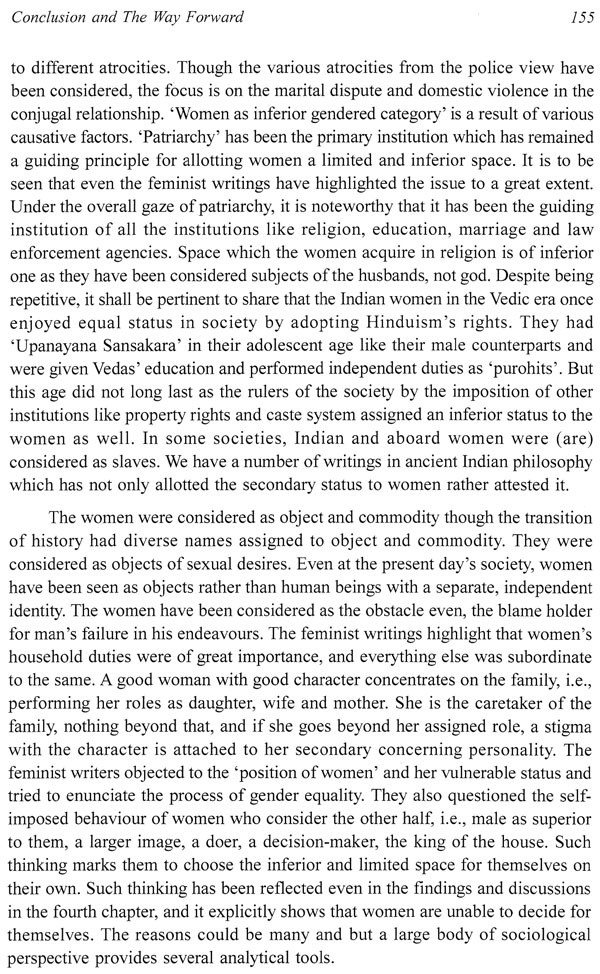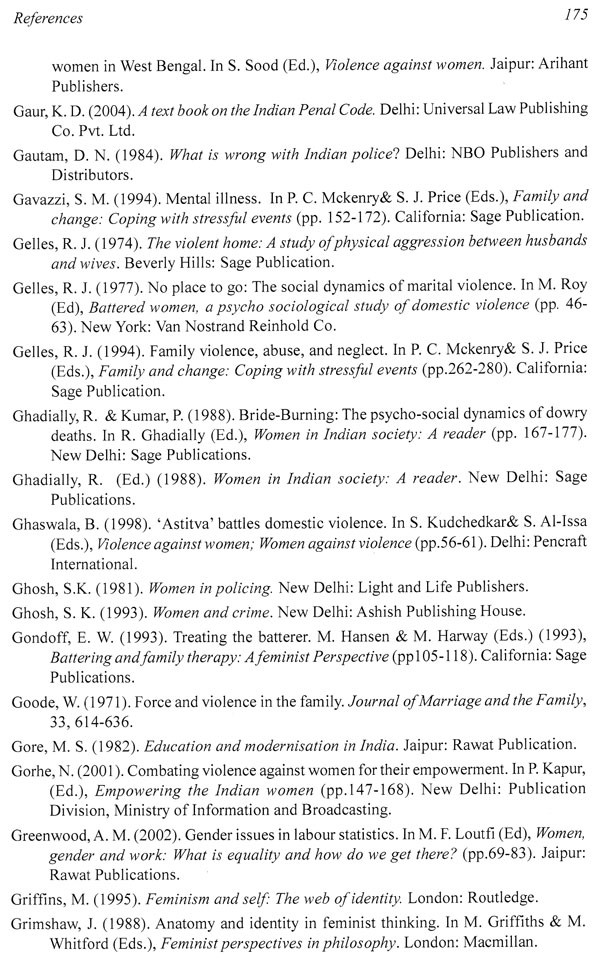
Voices of Survivors- Combating Domestic Violence
Book Specification
| Item Code: | UAV887 |
| Author: | Neena Pandey |
| Publisher: | EBH Publishers, Guwahati |
| Language: | English |
| Edition: | 2020 |
| ISBN: | 9789390434282 |
| Pages: | 218 |
| Cover: | HARDCOVER |
| Other Details | 9.50 X 6.50 inch |
| Weight | 490 gm |
Book Description
Voices of Survivors is an account of violence survivors at home. This volume is based on the empirical work undertaken during the writer's doctoral work on Atrocities on women and role of Police in Delhi. Violence at home is an age old phenomena which is prevailing as cancer in our society. The problem of domestic violence stands at a distance from cure despite being addressed on national and international forum. Historically, it has been considered as the issue of women only, instead of accepting it a societal problem. Women and other agencies who are engaged in combating violence at home, are still struggling to bring the issue of domestic violence to public domain. The traditional norms and cultural directions are still argumentative in posing the discourse on domestic violence that it is a private matter between intimate relationships. This is one of the unhealthiest behaviour of any society which keeps the women far from accessing rights of being a complete human. The book unfolds the expressions of the women survivors facing violence at home and ac cessing services of police in the crime against women cells in different districts of Delhi. The work represents strength approach of social work where the survivors' voices finds prominence. Also the initiative of police and civil society insights have been described to view the problem of domestic violence as a societal issue and not as an individual phenomenon. The volume also tries to suggest certain workable solutions to this growing menace. It is not only desired but it is mandatory to have healthy practices in intimate relationships through proper and full proof justice mechanism in place so that idea of development is harnessed, practiced and enriched equally by every section of society.
Dr. Neena Pandey is an academician and currently Associate Professor in Department of Social Work, University of Delhi. Her interest areas consist of gender issues, Criminal Justice Social Work and Social Work with Individuals. She is engaged with the services being rendered to women survivors of violence at home. She is working in collaboration with Delhi Police for more than ten years. Presently she is representing Department of Social Work, University of Delhi as Technical Support Agency (TSA) and actively involved as Principal Investigator (PI) in the pilot Project entitled Establishment of Social Service Units in Delhi Police Stations funded by Ministry of Home Affairs, Government of India. Dr. Pandey graduated in Sociology from Banaras Hindu University and completed her Masters in Social Work, M Phil in Social Work and PhD in Social Work from Department of Social Work, University of Delhi. She is engaged in writing on women's issues in the journals and published books on Women in Folk Songs and Stree Astitwa Asmita evam Adhikar. She firmly believes that women's issues requires to be brought in the fore front and needs to be conversed at every level so that the process of equal participation in all the institutions can be strengthened to ensure better quality of life in society.
I feel honoured to write the foreword for the book titled 'Voices of Survivors: Combating Domestic Violence', the outcome of an intensive empirical study carried out by the author for her doctoral work.
The publication is the saga of the struggle of Indian women as survivors of domestic violence with the focus on their experiences with the 'Crime Women Cell' of Delhi Police. Recognition of the voice of the survivors is of utmost significance to bring the change in society. It is the survivor who understands the circumstances and the factors which impact her by all means. The only thing which she is deprived of is the direction and support to combat it. Once that is achieved, she is well prepared to participate in the project called problem-solving actively. The survivors help design the specific services to be explored and make it workable to venture new meaning to the existing context. It is the other associative factors which force her to tolerate the injustice in the name of numerous things. This "in the name of" is the real pressure in her life which compels her to maintain the statusquo. Rather, it works in such a way that she always weighs her issues and problems as secondary and inferior in her list to handle and be focused upon. This is how she has been socialised and trained. This is the result of the social construction of genders. The women are forced to live as per the constructions mandate. That results in a real problem of imbalance where success can be derived by compromising the other's needs and aspirations.
The author has examined and analysed the various dimensions of the phenomena; violence in intimate relationships. The perceptions of respondents regarding their plight and the services being rendered to address their plight, the interventions by the police, and women's organisations have been captured minutely. The different social work approaches, especially the strength-based and rights perspective, have been used as a lens to see the women in violent homes. The feelings, emotions and expectations of women whose rights are violated and then they reach to the service delivery agencies knocking the doors of justice for them. The book captures the gaps in the services which the women survivors felt exists and needs to be bridged. The qualitative accounts of women's experiences open up directions for further inquiries and the need to review the current services, the training and orientation of police personnel, lawmakers, social work professionals, judiciary and welfare administrators.
"Mere toh ghar ke aas paas sabhi aurton ki yahi kahani hai; agar beech beech mein police aakar hamare mardon ko check kare toh shayad thodi sahuliyat mile" (in my neighbourhood, almost every woman has a similar story of violence, so it would be really helpful if police personnel do come and warn the menfolk of our society from time to time)
“Expressed a Woman Survivor of Violence”
The above statement is given by one of the women survivors interviewed regarding violence at rest. This statement provides a comprehensive outlook of the menace of domestic violence experienced by women in their day-to-day life. It also reflects women's status in our society where the rigid and complex social structure with men being portrayed as the supreme agency of it; has grabbed women in its clutches. Besides, it also reflects the person's participation in problem-solving. She has suggested the mechanism that needs to be adopted as a strategy to overcome the ill effects of violence at home.
Further, the survivor has expectations from external agencies like police which is part of the state and delivers certain services to protect violence survivors' interest at home. Her expectation and suggestion make her a vital agency to ensure the processing of the services meant for her and other survivors. This empirical study also gives the service providers appetite to take the vision of violence-free home forward. The statement reflects immense strength upon the survivor who was full of hope and energy to work out the problem and negotiate for peace in her life but only awaiting the due process to unfold.
**Contents and Sample Pages**
